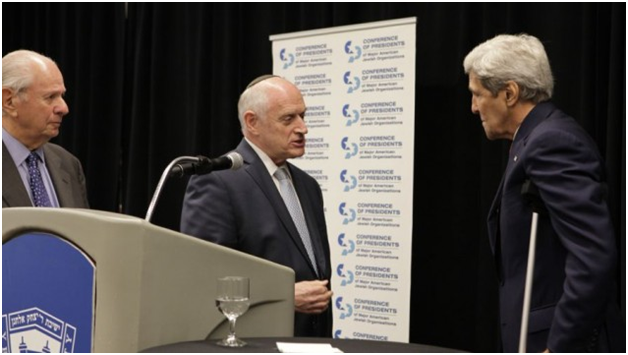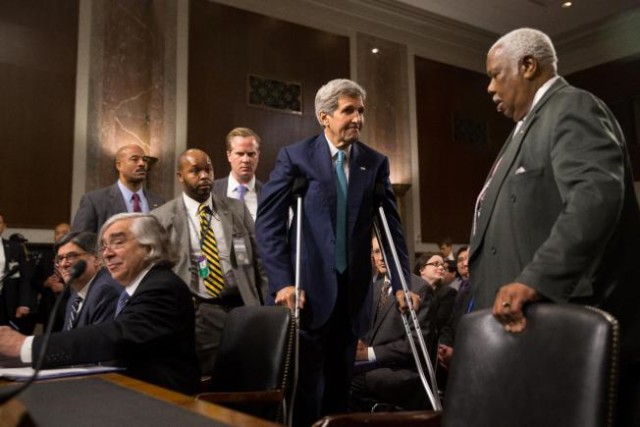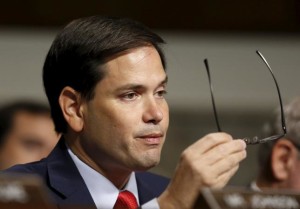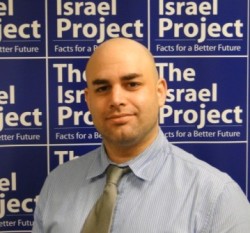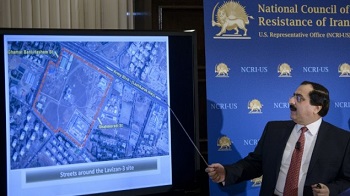The Temple Mount is in our Hands: The Legacy of the 1967 Six Day War
The 28th of Iyar in the Hebrew Calendar falls on May 23, 2017. It marks the 50th anniversary of the June Six Days War in 1967 that resulted in the incredibly swift victory by Israeli forces against the massed armies and air forces of the United Arab Republic led by charismatic Egyptian President Gamal Abdel Nasser. Nasser had led the creation of the secular Pan-Arab movement encompassing Egypt, Syria, Jordan, Lebanon and Iraq. He was playing off Moscow versus Washington. He sought to ‘erase Israel from the Map of the World’ in revenge for the defeats in both the Israeli War for Independence in 1948-49 and the abortive Suez Operation in 1956 with the UK and France.
Nasser was seeking a secular socialist Arab empire. That is in sharp contrast to Israel’s current nemesis, Iran, that adopted the same slogan. It is seeking a Pan Islamic conquest of the Middle East and beyond with the aid of nuclear weapons, missiles and proxy fighters, Shiite Hezbollah in Lebanon and the Houthi in Yemen.
Nasser ratcheted up his game plan in May 1967, demanding that UNEF troops withdraw from the Sinai so that his mobilized Army could replace them. He created a causus belli with the closing the Straits of Tiran, at the mouth of the Red Sea., to Israeli navigation. That prompted US President Johnson and British Prime Minister Harold Wilson to consider forming an international flotilla to break the impasse. Israel’s Defense Minister Moshe Dayan and IDF Chief of Staff Yitzhak Rabin had other plans. The country mobilized its reservists, deployed its forward forces, girded for possible action.
On the morning of June 5th, Israel launched virtually its entire air force of French made Dassault Mirage fighter bombers, Fouga close air support aircraft and US A-6 fighters in a brilliant attack from the Mediterranean Sea. It caught and destroying the Egyptian air force unawares at breakfast time. Later Syrian and Jordanian air forces would be similarly decimated. That enabled a breakthrough in Gaza and the Sinai passes that facilitated armored units reaching the Suez bypassing struggling Egyptian forces. Israeli forces in the north fought their way up and took the strategic Golan Heights from Syria aided by intelligence from Israeli spy Eli Cohen who had penetrated their military. His identity discovered he was executed in 1965, after providing Israel with key information on Syria’s forces.
What to do about Jerusalem was initially left undecided. The immediate question was what to do about the Jordanians who had occupied east Jerusalem illegally for 19 years following the 1949 Armistice. Initially concerned about the opposition it would meet from the Jordanians and in response to shelling of West Jerusalem, the decision was made on June 5th to send the 55th Parachute and Jerusalem Brigades to enter the fray. That culminated in liberating Israel’s ancient capital on the morning of June 7, 1967 with a radio message from paratroop commander Col. Mordechai “Motti” Gur, “the Temple Mount is in our Hands.” The Six Days of War ended on June 10, 1967. Israel had increased its territory by more than three times. Much of that would be returned in subsequent disengagement agreements and peace accords with both Egypt and Jordan in 1979 and 1994.
50 years later there is a legacy of unresolved issues: the question of Israel’s sovereignty over its eternal capital, the fixing of ‘secure and just’ borders under UN Security Council resolutions 242 and 338, Israel’s legal rights to “close settlements on the land” under International law, and the impasse over a possible peace agreement between the Palestinians and Israel. Also outstanding is the matter of a possible move of the existing US Embassy in Tel Aviv to Jerusalem enabled under a 1995 Jerusalem Embassy Law passed by the US Congress. However, it has been but waived every six months by four US Presidents because of ‘national security issues’, meaning resolution of the Palestinian- Israeli conflict.
On the cusp of the 50th anniversary of the June Six Days of War, President Trump is making his first major overseas trip to the Middle East and Europe starting on Friday, May 19th. His first stop will be in Riyadh, Saudi Arabia where he will be addressing a summit convened by King Salman with 50 Muslim Countries, members of the Organization of Islamic Cooperation. Separately, he will be discussing possible military aid to the Saudis and the Emirati members of the Gulf Coordination Council concerned over the threat from Iran across the Persian Gulf. He may come away from that encounter with possible proposals for reigniting the moribund peace process between the Palestinians and Israel.
His 26 hours in Jerusalem will include the first American Presidential visit to the Western Wall of the Temple Mount. He will lay a wreath at the Yad Vashem Holocaust Memorial and hold a private dinner with Israeli Prime Minister Netanyahu. Present at that dinner will be the new US Ambassador to Israel, the Hon. David Friedman, who in contrast to the President’s 2016 election campaign promises, has taken up his seat in the existing Tel Aviv Embassy and the official residence in Herziliya.
Against this background, we convened another in the periodic 1330am WEBY Middle East round table discussions hosted by Mike Bates of “Your Turn” with Shoshana Bryen, senior director of the Washington, DC-based Jewish Policy Center and Jerry Gordon, Senior Editor of the New English Review. The Center’s Spring 2017 Quarterly edition of inFocus, “Six Days and Fifty Years“, was devoted to a review of historical documents and analysis of the legacy of that significant conflict
Mike Bates
Mike Bates: Good afternoon and welcome to Your Turn. This is Mike Bates. This hour is one of our periodic Middle East round table discussions and I have with me in the studio Jerry Gordon, Senior Editor of the New English Review and its blog, “the Iconoclast”. Jerry welcome.
Jerry Gordon
Jerry Gordon: Glad to be back.
Bates: And joining us by telephone Shoshana Bryen. She is Senior Director of the Jewish Policy Center in Washington. Shoshana welcome.
Shoshana Bryen
Shoshana Bryen: Thank you Mike.
Bates: So a lot is happening in the Middle East always but this week particularly it seems like it’s even more active than usual. President Donald Trump will be visiting Israel on the eve of Jerusalem Day commemorating the liberation of Israel’s capital during the Six-Day War. As we approach the 50th anniversary, Monday the 22nd, the President will be in Israel. Shoshana, what’s your overall take?
Bryen: Mike it’s not actually his first foreign visit because his first visit is to Saudi Arabia and I think that’s great. I’m really pleased that the President is going to go to Saudi Arabia. He is going to meet with the leaders of other Arab countries and bring that information to Israel and I think that’s terrific. The largest problem in the region is Iran. We get fixated on Palestinians but the problem is Iran. This will help them bridge some of the gaps between the Gulf State positions and the Israeli positions and could lead to very interesting things in the future.
Bates: Do you expect any activity, anything significant on the big elephant in the room and that is the Palestinian-Israeli conflict?
Bryen: No. I think the Presidents take a position saying let’s start working on this. Let’s think about this. Let’s talk about this. I don’t think you will see anything major pop up regarding the Palestinians.
Gordon: Shoshana, what is this spat that has popped up in the press between Netanyahu and Trump? How manufactured is that and really what is the background for it?
Bryen: How about a hundred percent manufactured. The first question was, is Jerusalem in Israel? Does Israel have control over Jerusalem and somebody said no; Jerusalem is not in Israel. The White House very quickly put out a statement that saying this was “not authorized communication and comments about the Western Wall do not represent the position of the United States and certainly not of the President.” That was probably the fastest White House statement I have ever seen, so I think you have people who are trying to look for trouble and if they can’t find any they will make some. There was also another comment that didn’t quite make the same level of press. Secretary of State Tillerson said something about “Israel and Palestine.” So the Palestinians said, “Oh wow, this is great!” Immediately Tillerson said, “No that wasn’t meant to do that.” That was a mistake. So, I don’t think the problem is with the President and I don’t think the problem is with Secretary Tillerson. I think the problem is looking for ways to embarrass the President or ways to embarrass Israel.
Bates: Many of these communication mistakes are coming from within the administration. Do you see the White House as being undisciplined?
Bryen: No, I don’t think it’s undisciplined. I think they still have an awful lot of holdover personnel particularly in the case of Israel are not going to be friends of either the President or Israel. If it was up to me I would ask for the resignations of every single person that worked there in the prior administration.
Bates: What is the symbolism of the visit, specifically to the Western Wall? Do you anticipate and that it probably will occur, do you anticipate that Donald Trump will visit the Western Wall? If so I understand that he would be the first sitting President to do so and if he does, do you expect him to be accompanied by Prime Minister Netanyahu?
Bryen: On the first one, yes, I do think he will go to the Western Wall. I think he will set that precedent and be the first sitting President to do so. Whether he is accompanied by the Prime Minister is very hard for me to tell. By previous common understanding, American officials are accompanied by the Chief Rabbi of Israel. This is a decision that will be made by the President and the Prime Minister and you can second guess it but I won’t.
Bates: Can you give us some insight on what the pros and cons of a dual versus simultaneous visit would be? Why do it, and why not do it?
Bryen: There are people who say that if he goes with the Prime Minister of Israel who is a political figure, it’s like asserting Israeli sovereignty at that space. It’s as if the President accepts Israeli sovereignty there. There are people who don’t want that. There are people who do. There are people who will say, no, President Trump hasn’t agreed that Israel is the sovereign authority in Jerusalem. However, you can’t ignore the fact that this is the holiest place in the Jewish world and so the President has visited a holy Jewish place with a Jewish Prime Minister so you can play it either way.
Gordon: Shoshana there was a very interesting op-ed in The Wall Street Journal by Northwestern University Law School Professor Eugene Kontorovich. He is the architect of a very successful anti-BDS law that has been passed by several states. He drew attention to Russia’s recognition of Israel’s capital in West Jerusalem. What were his arguments to support U.S. recognition of Jerusalem as Israel’s eternal capital.
Bryen: Essentially Kontorovich said if a major power in the world can do that then the United States can do it as well and he is correct. However, the Russian statement is not as definitive or as positive I think as Kontorovich paints it in The Wall Street Journal. The Russian statement says, “We reaffirm the U.N. approved principles for a Palestinian-Israeli settlement which include the status of East Jerusalem as the capital of the future Palestinian state. At the same time, we must state that in this context we view West Jerusalem as the capital of Israel.”
The problem here is that if you see East Jerusalem as the capital of the Palestinian state in those kinds of blunt terms you are essentially making a case to re-divide the city. If you re-divide the city all the Jewish patrimony stays on the wrong side. I think the Russians were making a statement of principle. West Jerusalem for the Jews, East Jerusalem for the Palestinians, that’s probably not the best way to deal with Jerusalem. At the end of the day the Jewish people need to have access and control of Jewish holy places, so I’m not thrilled with that statement.
Bates: Do you anticipate that the United States Embassy will move to Jerusalem?
Bryen: No.
Bates: Ever? Well, maybe ever is too long a time, I mean in the next five years
Bryen: Yes, right, never. You know I don’t know about five years. I do believe the President will use the waiver this time. I would point out that President Trump used the waiver process in the case of Iran a few weeks ago to buy himself some time on the specifics of what he wanted to do with Iran. Several people in Washington went crazy and they said,” Oh, he’s not going to get rid of the nuclear deal and he is caving on Iran.” No he wasn’t. He used it as an opportunity to have the Secretary of State and the Secretary of Defense begin pointing out other bad things Iran does. It’s not just the nuclear deal. So the waiver is a mechanism for deciding how you want to handle a sticky situation. In the case of Iran, it was well used to begin a process of pointing out that Iran is just basically a bad country.
In the case of Israel which is a friendly country and an ally, it still gives you an opportunity to push off the decision and do other things. What I want to know is, what are the other things? My greatest hope is he will use the time to talk to the Palestinians honestly about their behavior and make them understand that their behavior is incompatible with peace. If he uses it that way – give one take one,/take one give one – he’s probably on the road to something useful.
Gordon: Shoshana, Trump met with the infamous PA President Mahmoud Abbas in the Oval Office. Among other things he criticized him for doing was paying stipends to Israeli jailed Palestinian terrorists like Marwan Barghouti and their families estimated at over four hundred million dollars annually. Are any of these funds coming from U.S. taxpayers and what evidence do we have of the Administration and Congress trying to stop such abuses?
Bryen: I must say the money that goes to terrorists does not come from U.S. distributions. We are very clear about it because one hundred percent of our money is tied up in projects. We have projects for economic development, improving water access, healthcare and education. We also pay Palestinian creditors certain of them directly. The United States pays the Israeli Electric Authority because the Palestinians don’t pay their bills. So U.S. money is not going to terrorists. That’s point one. Point two is that in the meantime there are bills in the House and Senate to cut off U.S. funds to the Palestinians. There is one by Texas Senator Ted Cruz, there is one by Lindsay Graham, there is corresponding legislation in the House. The issue that I see here is that if we cut off our money and we stop those programs in infrastructure, water access, and health, the Palestinian Authority is unlikely to fund them so they will wither on the vine. They will die. Maybe that’s good maybe it’s not good, those programs will go away. The Palestinian Authority will continue to use its other money – UNWRA money, EU money, Saudi, Qatari, PLO, direct tax money, any other way that they get money. That money will continue to go to terrorist salaries so we may be cutting off our noses here despite our faces.
Gordon: Shoshana there was news in The Wall Street Journal about a Gulf Cooperation Council plan based on the 2002 Saudi plan for recognition of Israel. Why is that a nonstarter?
Bryen: It’s a nonstarter because it’s backwards. It inverts the process. UN Resolution 242, which is the cornerstone of Israel’s security emanating from the ’67 war, requires that the Arab states go first because they were the ones who waged three wars in 1948, 1956 and 1967. They are required, according to the UN, to terminate their states of belligerency and respect the legitimacy, sovereignty and territorial integrity of all the states in the region. The only one that matters in that context is Israel. After that there are supposed to be boundaries drawn. The Saudi plan says that if Israel withdraws from all the territory it acquired in ’67 – which by the way would include the Golan Heights today. Can you imagine what would happen if the Syrians were on the top of the Golan Heights today? If Israel would withdraw from all the territory acquired in ’67 including Jerusalem and the holy sites, the Arab peace plan says, after that, the Arabs will consider their 242 obligations. It’s backwards. It won’t do.
Bates: Are you seeing any forward progress in the peace process at all?
Bryen: What’s the peace process?
Bates: Now that’s a good question.
Bryen: Look if you are talking about Palestinians and Israelis, no there is no peace process because the Palestinians will be the last people to make concessions to Israel. They need the backup of the Arab states who pay their salaries so they will never go first. Now, if you are talking about the broader region, where Israel fits in, how the Saudis, the Emirates and Jordan feel, there may be some movement. There is movement because the Gulf states see their primary enemy as Iran, and on that subject Israel is a potential source of assistance on intelligence, weapons, tactics and training. There is a place for Israel in the region if you leave the Palestinians out of it for the moment. That was the suggestion we got when President Trump stood with Prime Minister Netanyahu in Washington and it was a very good vibe. They were going to lift their eyes, they were going to look at the region, they were going to see where the spaces were for movement and I think they will still do that.
Bates: Specifically with the Palestinian issue there was a recent revision to the Hamas Charter that allegedly recognized the Israel. People have touted it as a complete reversal of the position of the Palestinians. Specifically, Hamas, who previously had called for the destruction of Israel. Their revised Charter isn’t calling for that anymore. The Palestinians want peace. So, if peace doesn’t happen, it’s now the Jews’ fault. After those headlines Hamas came back and told their people, “We said that but we didn’t really mean it.” How do you interpret this revised Hamas Charter?
Bryen: You know what Mike? I don’t require interpretation at all. Go straight to the text of the new document. Forget about statements afterwards. In the new document it says:
Hamas rejects any alternative to the full and complete liberation of Palestine from the river to the sea without compromising its rejection of the Zionist entity and without rejecting any Palestinian rights. Hamas considers the establishment of a fully sovereign and independent Palestinian state with its capital in Jerusalem along the lines of the June 4th, 1967 Armistice line with the return of the refugees displaced from their homes in 1949 to be the formula of national consensus.
In other words, no Israel. If the Palestinian Authority wants to talk to the Jews and if they accept a fully independent Palestinian state as a temporary measure that’s okay. They are agreeing to accept Palestine wherever it gets liberated but “river to the sea” means all of it. Anyone who is looking for anything else it’s not in there. It’s pretense, it’s all made it up. Hamas was making a single pitch to the Palestinian Authority saying, “If you want to negotiate with the Zionists you can, but it won’t be the end of the war.”
Bates: What is so striking about that is the new Charter is overt deception. It wouldn’t be deception at all to those who are paying attention, so why was this celebrated?
Bryen: Because people see what they want to see and hear what they want to hear and nobody who read it said any of those things. All they heard was you could have a Palestinian state in the West Bank and Jerusalem and it’s not the end of life. It’s not, it’s a stage in the destruction of Israel and I think the Israelis take that extremely seriously. You know you can’t account for people who read into these things what they want to. You really should go to the text and the text is clear.
Gordon: Shoshana, the Jewish Policy Center, where you are Senior Director published a rather interesting monograph. I commend it for our listeners to obtain a copy. It’s all about the commemoration of the 50th anniversary of the June Six-Day War, 1967. One of the more important documents included was written by the late Professor Eugene Rostov of Yale Law School who formerly was a Senior State Department Official during the Johnson Administration. He had a hand in drafting the provisions of UN Security Resolution 242. What were his basic arguments about Israel’s international legal rights for “secure and just borders” and “close settlement on the land”?
Bryen: His single most important point was the British mandate. A mandate is a mission to do something. In this case, the mandate was for the establishment in Palestine, in their historic home. The British got the mandate to do that and the Mandate called for “closed settlement on the land” by Jews. It was an invitation to Jews to settle in Palestine. A lot of places became states in the 20th century became states because they consolidated territory by war or by political means. There are lots of reasons the places became states, but only one place in the world is a state because the countries of the United Nations wanted to make it one. Because of the mandate; the UN invited Jews to come and live in Palestine as their national home. The Jews relied on that promise that the UN wanted them to come to Palestine and create the national homeland for the Jewish people.
Rostov feared that if the UN and the West betray those commitments, “it would take a long step toward dissolving the world’s community as organized by the United Nations.”
The UN didn’t give the Jews their interest in Palestine. Palestine is the return of indigenous people to their homeland. The UN wanted it and they helped to create it and they invited the Jews and made promises to the Jews.
The third point which is a little different than the other two, is the League of Nations and then the United Nations did not see the territories as “Arab.” They are not “Arab territories” so anyone who says the Jews “came to the Arab territories” or the UN “took Arab territories for the Jews”, this is not correct. The territories in that region have been occupied by the non-Arab Ottomans for five hundred years and in those five hundred years all kinds of people lived there. Kurds, Jews, Turkmen, Baluchi, Yazidi – all kinds of people lived there. Israel was not created out of “Arab land” in the eyes of the UN. It was created out of the remnants of an empire that was dissolved, and that strengthens the Jewish claim to the piece of land that they have or to other lands that they wish to have.
Bates: Jerry, we are rapidly approaching the 50th anniversary of the Six-Day War, June 5th through June 10th, 1967. As a result, Israel expanded their country significantly having captured the Gaza, the Golan Heights, the Sinai and the West Bank. We understand there is a documentary that will be playing in theaters across the country on Tuesday night, May 23rd. What do you know about that documentary?
Gordon: It is a docudrama produced by CBN and it focuses on the struggle and breakthrough into Jerusalem of the 55th Parachute Brigade of the IDF headed by then Colonel Mordechai “Motti” Gur. I want to read an excerpt out of a book about Jerusalem and the breakthrough that will give you a sense of the drama that occurred. Simon Sebeg- Montefiore’s book, Jerusalem: The Biography captures the climactic moment of liberation during the June Six days of War in June 1967. Note this excerpt published by the National Post, “The Temple Mount is in our Hands”:
First the Israelis bombarded the Augusta Victoria ridge using napalm, the Jordanians fled. Then Israeli paratroopers took the Mount of Olives and moved down towards the Garden of Gethsemane. We occupy the heights overlooking the old city. Paratroop Commander Colonel Motti Gur told his men in a little while we will enter it the ancient city of Jerusalem where for generations we have dreamed of and striven for we will be the first to enter. The Jewish nation is awaiting our victory. Be proud and good luck.
At 9:45 a.m. the Israeli Sherman tanks fired at the Lions Gate smashing the bus that blocked it and blew open the doors. Under raking Jordanian fire the Israelis charged the gate. The paratroopers broke into the Via Dolorosa and Colonel Gur lead a group onto the Temple Mount. ‘There you are in a half track after two days of fighting with shots still filling the air and suddenly you enter this wide-open space that everyone has seen before in pictures,’ wrote Israeli Intelligence Officer Arik Ackmon, ‘and though I’m not religious I don’t think there was a man who wasn’t overwhelmed with emotion. Something special had happened.’ There was a skirmish with Jordanian troops before Gur announced over Israel radio the Temple Mount is in our hands”, hence the name of this docudrama. The docudrama portrays what occurred in the battle for Jerusalem through recreations and interviews with many of the surviving paratroopers who made that assault and liberated Jerusalem.
Bates: This docudrama that Jerry is talking about In Our Hands-The Battle for Jerusalem will be playing in Northwest Florida at the AMC Bayou 15 theatres which is on Bayou Boulevard between 9th Avenue and Davis Highway at 7 p.m. on Tuesday, May 23rd and it’s one night only.
Bates: Shoshana, speaking about the Six-Day War and specifically the capture of the Old City, I have three questions which I will ask all at once so that you can answer them however they need to be answered. 1) Why were the Israeli forces originally forbidden from entering the Old City, 2) why did they then decide they would go into the Old City, and 3),after capturing the Temple Mount why did they give it back?
Bryen: There are three questions that are really one question. The answer to the big question is remember that Israel didn’t think it was going to win that war and they didn’t think the Jordanians were going to enter the war. The Israelis were telling the Jordanians from the beginning don’t do this, don’t get involved, stay home. The Jordanians for their own reasons began shelling Western Jerusalem from Eastern Jerusalem. But before that, if you remember May of 1967 the Israelis believed they were going to lose. Twenty-five years after the Holocaust they believed this could be it for the remaining Jews. Rabbis were talking about mass graves. So the reason they didn’t want to go into the Old City was they hadn’t planned on it. Plus, they were afraid that it was booby-trapped and that there would be greater destruction of holy places. And number three they just didn’t think about it.
Now, by the time they got to it was clear, they had destroyed the Egyptian Air Force, they were rolling in the Sinai, they were rolling on the Golan, they were going to roll in Jerusalem so they did it. They found it was not booby-trapped. The Arabs surrendered the city with not very much destruction.
To your third question. They didn’t give it back. What they said was, “The mosque on the top must be ruled by Arabs, by Muslims; it is not our space. Unlike the Muslims who in ’48 and ‘49 took all the Jewish spaces and they destroyed them. Forty-seven synagogues they destroyed, not to mention the Mount of Olive Cemetery. When it was the Jewish turn they said, “No not us. We are not going to destroy it and we are not going to rule it.” They went to the Waqf, the Muslim o, religious authority in the city of Jerusalem, which was under the control of King Hussein of Jordan, who is the guardian of the mosques of Mecca, Medina and Jerusalem. They made a deal that religious people would take care of religious space. It’s an amazing thought that having returned to the space of the Western Wall they looked on top and they saw someone else’s religious patrimony there and they respected it.
Bates: What they got for that respect was continued violence and even the Temple Mount you say that they didn’t give it back and I suppose arguably you are right. On the other hand, it’s being managed by this Waqf and Israeli police control the entry points to the Temple Mount. Muslims, with rare exceptions when violence is feared, can enter any time they want and can pray. Non-Muslims are limited to very specific entry times from very specific entry points and are prohibited from overtly praying on the Temple Mount.
Bryen: Well that’s a quirk. Because Israel’s Rabbinate did not want people praying on the Temple Mount and the Israeli Government took that as their signal – which was the answer the government wanted; a rare case of the Rabbinate making the government’s life easier rather than harder. The Rabbis were concerned that people could find themselves praying in the space that was originally the Holy of Holies and you can’t and that’s a religious issue. The Israeli government said the Rabbis don’t want it, the Arabs do want it so we don’t want it. I don’t know what would have happened if the Rabbis had said the opposite. I don’t know where it would have gone.
Gordon: Shoshana one of the allied problems has been that the Waqf has been the perpetrator of excavating what is the archeological Jewish provenance under the Dome of the Rock and much of that has been scattered in the debris in the City of David scree pile. That doesn’t indicate that in respect of what the Israelis did to grant control over the Dome of the Rock and the Al-Aqsa Mosque that it respects Jewish heritage there.
Bryen: The Waqf does not respect Jewish heritage and I would suggest that the Israeli government made a mistake in allowing them to do excavation. It wasn’t necessary. You must remember there is a difference between what happened in the days shortly after the Six-Day War when first there was certain euphoria because they had not expected to survive. In those first days after the Six-Day War the Arabs of Jerusalem were not threatening people. They surrendered the city rather than have it be blown up. They worked with the Israelis. They understood that they were occupied. Things that happened immediately thereafter were in the context of decent relations. Over time those relations didn’t stand up for exactly the reason you said. The Waqf and the Arabs do not fundamentally respect the Israeli position vis-a-vis Jerusalem at all and the Temple Mount specifically. They’re not quite as nice as they used to be. They continue to permit the Arabs to have a great deal of leeway on the Temple Mount and perhaps they shouldn’t.
Bates: I agree with that. I was in Israel in 2014 and I had a fair amount of difficulty getting to the Temple Mount. Ultimately we did get in and had a private tour from one of the Imams which is somewhat interesting itself. I was shocked by how exclusive it is against non-Muslims. Non-Muslims don’t have decent access to the Temple Mount. I just find that to be incredibly unjust. If there is any point of validity to the charge of apartheid it is the Temple Mount where the Muslims have it and the infidels don’t.
Bryen: Absolutely, but the Muslims will tell you don’t need to go to the Temple Mount because you are not a Muslim. So what difference should it make to you if you don’t have free access?
Gordon: That means that infidels or Kufr as people call them in Islam.
Bryen: Yes.
Gordon: Or Dhimmi, subjugated people under Sharia law.
Bryen: And not entitled to the same rights and privileges as Muslims.
Gordon: That’s correct.
Bryen: Which is to say Muslims can go there when they want but you don’t need to and so you can’t.
Bates: If I may editorialize for just a moment Shoshana and Jerry, Jerusalem isn’t really a holy place for Muslims anyway. They just want it so the Jews can’t have it and their claim is that Jerusalem is the third holiest site in Islam behind Mecca and Medina. This is based on the false story that the prophet Mohammed rode the winged horse from Mecca to Jerusalem on his night journey. They claimed that he ascended into heaven from the location of what is now the Al-Aqsa Mosque accompanied by the angel Gabriel. The problem with that nonsensical story is obvious to those who study history and just don’t take at face value what they are told. The night journey to Jerusalem referred to in the Hadith as the farthest mosque supposedly took place in 621. However, there was no mosque in Jerusalem in 621. It was Umar bin al-Khattab who built the first mosque in Jerusalem during the Rashidun Caliphate which didn’t begin until 632 following the death of Mohammed. Jerusalem wasn’t conquered by Muslims until 637! The likely date for construction of the first mosque in Jerusalem was 637. That is sixteen years after Mohammed’s night journey.. If I may be so bold as to say it, Islam’s claim to Jerusalem is a myth and not based on fact!
Bryen: There you go making sense because you are not supposed to be reading the dates of conquest and things like that. You are supposed to take it on face that this is what they say it is. It is a problem, I mean I’m laughing a little bit but I’m not laughing. They will tell you that the calendar doesn’t matter. What matters is faith and we believe this and if we believe it then you must treat it as if it’s true. Here you get to something that you will see in the political sphere as well.
It is not just religion; what they call their “narrative.” That means the history that they make up. Saeb Erekat once said that he was a Canaanite and someone said if you are a Canaanite you can’t be an Arab, because Arabs and Canaanites were different people. He said, “ Don’t tell me what my narrative is.” In other words, don’t tell me what my truth is. My truth is whatever I make it and so you are exactly right. If the dates of construction don’t match the reality of history and we care about that you’re supposed to say, “Oh well too bad, it doesn’t. It’s the narrative.”
You find a lot in the political sphere. This is what the Palestinian text books do. They tell you things that are not true. They say, “That is our narrative, that is what we teach our children because that is what we want them to understand.”
Bates: My motto is “truth above all” and whichever side that truth falls on that’s where I want to be. That’s why it bothers me so much when people tell and subsequently believe lies.
Gordon: Shoshana, Charismatic, Egyptian President Gamal Abdel Nasser triggered the crisis that lead to his and the so-called United Arab Republics defeat in the 1967 War. What were his objectives, how did he treat the Palestinians and why does that resonate today given the Iranian threats to Israel’s existence?
Bryen: Nasser was not interested in Palestine or Palestinians. Nasser was an Arab nationalist and he had only two goals. First was to be the leader of the Pan Arab Nationalist movement and second to play Russia and the United States against one another. Yes, he wanted to destroy Israel because he thought it was important for his nationalist Pan Arab goals. Occasionally, it was important to mention Palestinians, but the goals were always something else. The goals were always Pan Arab. How does it relate to Iran today? Iran is not Pan Arab obviously, however it is Pan Islamic and Pan Islam is a bigger and more expansive problem than Pan Arabism, but it has the same goal. It is the control of large stretches of territory and people.
Bates: And the re-establishment of an Islamic Caliphate.
Bryen: Nasser was not exactly Caliphate oriented because he was a secular nationalist. Now, the Iranians are looking for the Caliphate. ISIS is looking for the Caliphate. Al Qaeda is looking for the Caliphate.
Gordon: Erdogan is looking to create another Caliphate.
Bryen: Erdogan wants the Ottoman Empire back.
Gordon: Right.
Bates: Shoshana, you recently had the opportunity to interview Michael Oren, former Israeli Ambassador to the United States and the author of an outstanding book titled, Six Days of War – June 1967 and the Making of the Modern Middle East. What are your major takeaways from your interview with Michael Oren?
Bryen: Oren spent a fair amount of time talking about the difference between Pan Arabism and Pan Islamism. But the biggest point he made was without the Six Day War Israel would not be the country that it is today and he means that in positive ways. The Six Day War made the borders of Israel much more defensible. It made Jerusalem again the heart and soul not only of the State of Israel but of the Jewish people. The Six Day War brought religious freedom to Jerusalem. It gave the Jews a sense twenty-five years after the Holocaust, that they could compete in this modern world. They could live in this modern world.
What came out of that is the strategic alliance with the United States. Plus, Israel is in the top tier of countries in terms of scientific and educational development. Other kinds of development include computers, music, agriculture and water technology. All of that comes from the confidence to be who you are and to know that you can survive in the world. That is my favorite part of the interview which was also his biggest point.
That confidence has made Israel the only country in the modern world that has a birth rate that is above replacement. Israeli women have between three and five babies each and that is secular women. The Arab birth rate in Israel has gone down as Arab-Israeli women have more opportunities for education and professional opportunities, their birth rate has declined. The birth rate for Orthodox Jewish women has declined for the same reason. More education, more opportunities in the secular world. The birth rate for secular Israeli women is going up and it is over three babies per woman which is more than replacement. It is the highest number in the developed world. That is from optimism.
According to Ambassador Oren the Six Day War was itself a terrible trial of fire for the Jewish state, but what came out of it is a very positive optimistic and confident Israel which in his view and in mine can figure out how to solve their remaining problems.
Gordon: Shoshana on the back of your InFocus Spring 2017 Quarterly issue is a document you call your final thoughts entitled, “Back to the Future”. What are they?
Bryen: You cannot solve the current problems without going back to the fact that the Arab states have never ever recognized the legitimacy of Jewish sovereignty in the Middle East. To solve the problem, they have to do what they failed to do since ’48. If they do that everything else is possible.
Bates: Any closing thoughts, Jerry?
Gordon: For our listeners in Pensacola you ought to come and watch this terrific docudrama called, In Our Hands-The Battle for Jerusalem. It will be shown the AMC Bayou 15 on May 23rd, the eve of Jerusalem Day in Israel at 7 p.m. It’s the only showing and you ought to take someone with you and go see it.
Bates: Jerry and I will both be there and we hope to see you there as well. So, thank you Jerry Gordon from the New English Review and Shoshana Bryen with the Jewish Policy Center in Washington for joining us as well. Always enjoy these Middle East round table discussions. We thank you for listening today to Your Turn on 1330 WEBY.
EDITORS NOTE: This column originally appeared in the New English Review. Listen to the 1330am WEBY interview. Download the Jewish Policy Center, inFocus Spring 2017 Quarterly, Six Days and Fifty Years .



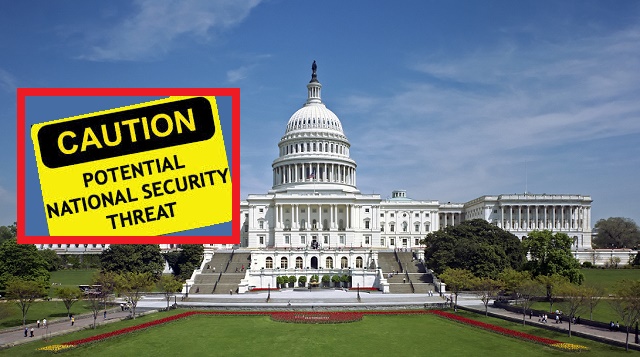



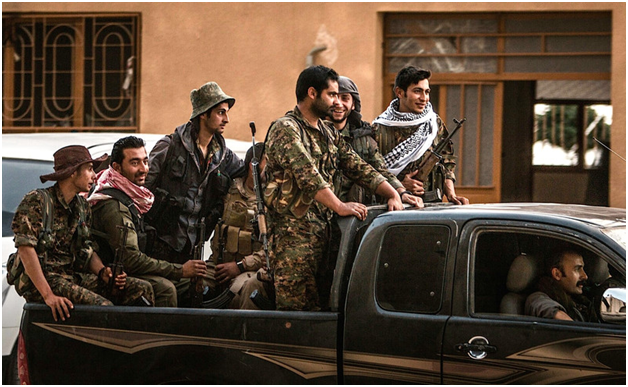


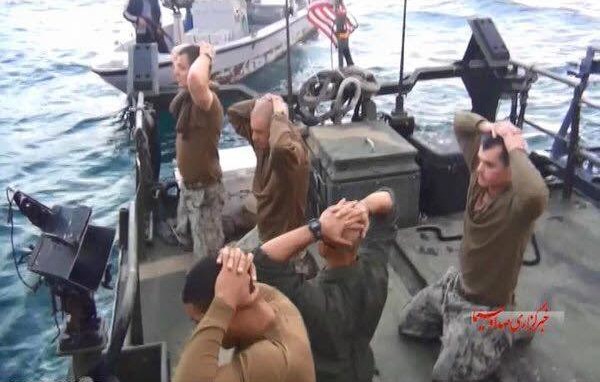 Yesterday, when we
Yesterday, when we 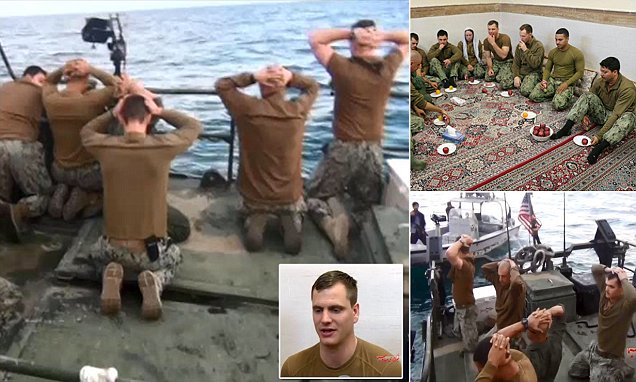



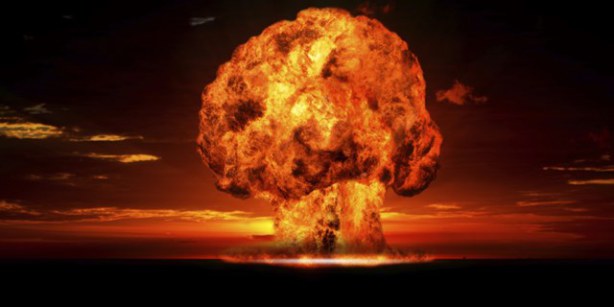
 Ambassador Woolsey in response to this question said that a nuclear detonation over the central US heartland would be a “hideous prospect.” He said it would put the US back into the pre electrical agrarian era of the 1880s “with plowshares and seeds.” It could possibly resulting in millions of deaths from destruction of the electrical grid and disabling of our food production, distribution and health care delivery infrastructure systems.
Ambassador Woolsey in response to this question said that a nuclear detonation over the central US heartland would be a “hideous prospect.” He said it would put the US back into the pre electrical agrarian era of the 1880s “with plowshares and seeds.” It could possibly resulting in millions of deaths from destruction of the electrical grid and disabling of our food production, distribution and health care delivery infrastructure systems. 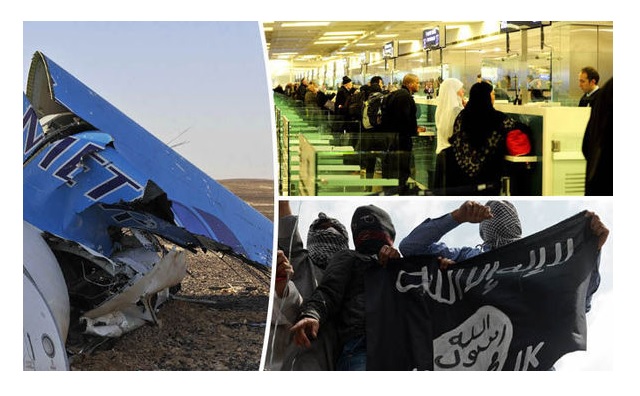
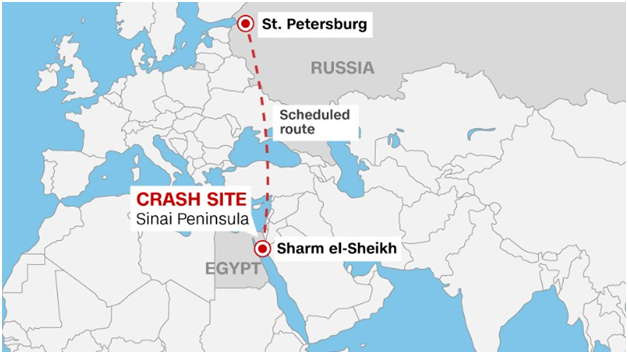
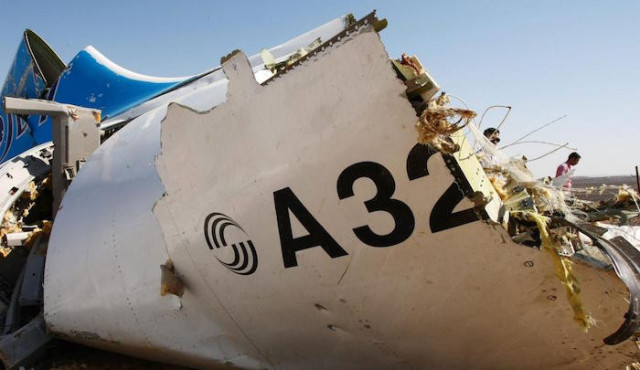



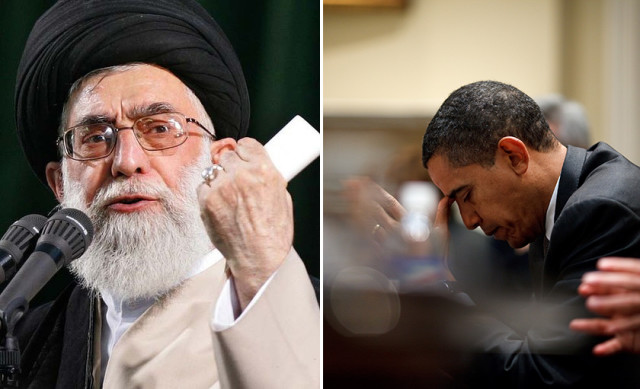
 The following were important takeaways from the August 9th Lisa Benson Radio Show:
The following were important takeaways from the August 9th Lisa Benson Radio Show:
